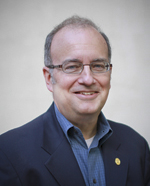
By Tom Ranken, Originally published by the Spokesman Review
In Washington, innovation is more than just a buzzword. Washington was recently ranked as the most innovative state in the U.S. in a Bloomberg report that cited Amazon, Microsoft and Boeing as leaders in the development of new technologies. Washington’s clean technology sector is also part of our innovation economy, with three Washington companies recently receiving global awards from the Cleantech Open and the Global Cleantech Clusters Association.
The Cleantech Open supports and fosters entrepreneurs with ideas that address energy, environmental and economic challenges. The GCCA is a business competition that endeavors to make clean tech initiatives global and provides a gateway for companies to gain exposure to investors and markets. These organizations recently recognized companies across Washington as world leaders.
Helion Energy, based in Redmond, is developing a commercialized form of fusion energy, a carbon-free process similar to what powers the sun and stars. Helion’s technology is capable of producing energy without generating waste. Helion received the top prize in the Cleantech Open’s Energy Generation category as well as the People’s Choice Award.
Another Cleantech Open winner was Phytelligence, a Pullman company spun out of research at Washington State University. Using genetic analysis and volume propagation technology, Phytelligence is helping the agricultural industry achieve better yields, reduce costs, and improve quality.
Silicon Energy of Marysville, a company highlighted by Gov. Jay Inslee during his gubernatorial campaign, received the 2013 Global Cleantech Cluster Award for producing durable, integrated photovoltaic solar modules. They are doing something different: Developing the best solar panels in the world, instead of the cheapest.
How do we build on the success of these award-winning clean tech companies in Washington?
Washington has been making some strides, including an initiative that sets a goal for 15 percent of the state’s electricity to be sourced from renewable technologies by 2020. During the 2013 legislative session, the capital budget included $15 million for energy efficiency and renewable energy projects, another $15 million for energy storage and smart grid grants, and $6 million in state matching funds for university and research institution clean energy proposals.
However, more needs to be done to create more jobs, both in the clean tech sector and in the economy at large.
Raising money to start companies is always difficult. In today’s economy, it is even more difficult. Entrepreneurs can’t create jobs if they can’t fund them.
Regulatory processes and policy uncertainty at the state and national levels create obstacles for entrepreneurs. A U.S. Small Business Administration study found that compliance with regulations costs small businesses 36 percent more per employee than larger firms. In April 2013, the Wall Street Journal reported that policy uncertainty has placed a $261 billion “tax” on the economy since 2011, and cost more than a million additional jobs.
The designation of Washington as the most innovative state is well deserved, but state leaders should not use the title simply as a political sound bite. Sustained support and incentives will help maintain Washington’s leadership in clean technology. If we don’t recognize the industry’s needs, we could end up with a lost opportunity.
A hallmark of Gov. Inslee’s campaign and his first year on the job has been his commitment to investing in clean technology as a way to build the state’s economy and grow jobs. This commitment is clearly shared by economic development organizations, legislators and Washingtonians across the state.
As our state leaders work through this short, 60-day legislative session, let’s hope they bring forth policies and legislation that not only provide us with a viable transportation system and necessary education investments, but also policies and legislation that build upon Washington’s capacities in environmental stewardship, technological innovation and entrepreneurship.
Tom Ranken is the president and chief executive officer of the Washington Clean Technology Alliance.